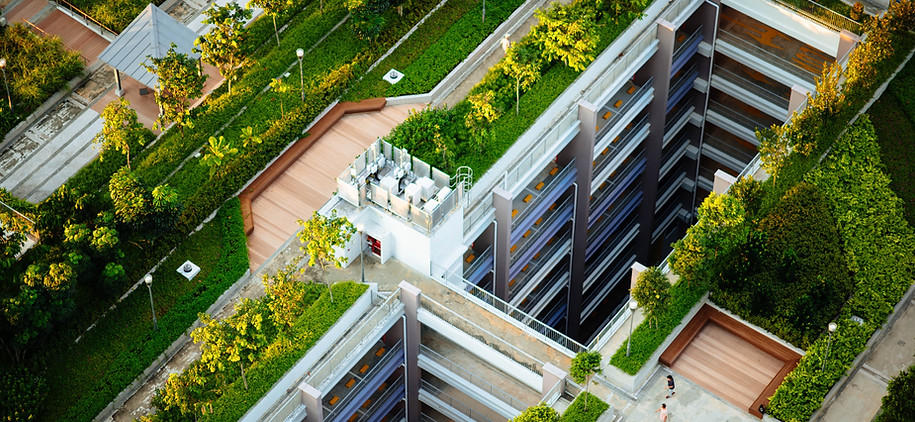
ecoflow

Automatic Irrigation in Green Buildings
Urban Living Meets Water Sustainability
Written by: Aaron Cheng, Rachel Lee
Date: 08/07/22
The world as we know it is undergoing a major shift. The most notable one — our environment. Cities on the other hand, are quick to adapt to an ever-changing environment and the needs of its people. Singapore, despite its tiny-city state, is not an outlier when it comes to implementing modern yet sustainable green solutions.
Walk along the streets of Singapore and you will notice that there are buildings with nature integrated in with modern architecture — also known as green buildings. Our airports, skyscrapers and even residential buildings are a display of Singapore's attempt to achieve environmental sustainability — and it has been a successful one. Singapore has become a gold standard for sustainable urban living, as a result of its hard work and determination over the last few decades.

Singapore, however, is limited in its water supply. Its natural geographical factors have proven storage and access to fresh water supplies to be an arduous one.
“... at least 80% of buildings (by floor area) in Singapore to be green by 2030”
- Building and Construction Authority (BCA)
An Arising Need
With BCA having a target set to increase green buildings, there is an increasing need to source for sustainable methods of consuming water. Green buildings have begun to incorporate and integrate strategies, such as rainwater harvesting systems, to better manage water consumption. While most green buildings have taken the first step, there are additional ways to reduce our water consumption further.
The Issue of Regular Irrigation Systems
Regular irrigation systems tend to release water at a designated time periods. This makes it less efficient than automatic irrigation systems, as the watering is done regardless of external factors such as soil moisture or the intensity of rainfall. With Singapore naturally experiencing constant rainfall and high humidity throughout the year, the need to water plants is lower than those in arid climates. As such, we should take full advantage of our favourable climate and introduce even more sustainable irrigation methods.
Smart Irrigation Systems
Ecoflow’s Automatic Irrigation System can do more than what regular systems do. It is a smart system capable of detecting and reacting to weather conditions and variations in soil moisture, to control the intensity of irrigation.
2 Main Components:
Irrigation System Head
Irrigation Zone
Our irrigation system makes use of an automated irrigation schedule with optimised cycles, whereby irrigation levels are auto-adjusted according to rainfall levels. It can even be fully integrated with our Rainwater Harvesting System, allowing you to channel more harvested rainwater for other purposes. It is efficient, convenient and sustainable.
Key Features:

Cloud-Based Controller

Automatic Filter Backwash

Flow Sensors
The Future of Water Sustainability
It is critical that businesses recognise the impact that they have in accelerating Singapore’s transition to achieving water sustainability. Water sustainability is not achievable through a one time installation but through continuous pursuit. It is more than just optimising an irrigation system, but also integrating other water sustainable technologies and solutions. With our water limitations, businesses have to start incorporating appropriate water management strategies into their operations to maximise water efficiency.
Ecoflow’s Automatic Irrigation System and Rainwater Harvesting System can be tailored to your specific business requirements, allowing you to reduce water wastage and contribute to water sustainability in Singapore. It can be the first step for you in beginning your pursuit of water and business optimisation.
References
Building and Construction Authority. (n.d). Green Building Masterplans. https://www1.bca.gov.sg/buildsg/sustainability/green-building-masterplans#:~:text=The%20target%20is%20to%20have,of%20environmental%20sustainability%20in%20Singapore.